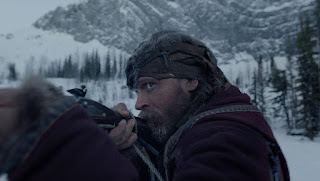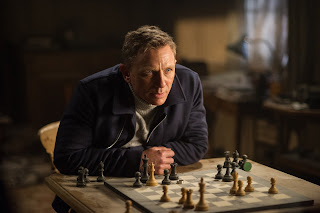"I Know There's Things You Can't Tell People, But I Also Know There's A Story Here People Will Hear About..."
Before we begin, let us look back at the year of 2015 in film, a film in which Spotlight director Tom McCarthy decided it was best to embrace us with a continuation of one Adam Sandler's career with the release of The Cobbler, a film so inept in quality and clouded with sheer hatefulness, one could argue it was set to ignite the downfall of McCarthy's career, a career that so far had included critical successes with directorial credits on films such as The Station Agent featuring Peter Dinklage, and writing credits for being the mastermind behind the script of Disney Pixar's Up, a film which generated similar critical acclaim. So the question remains, how on earth did the fundamental talent of Mr. McCarthy end up creating one of the real stinkers of 2015, a film so terrible it holds the distinction of being placed on this sites' worst films of last year, pulling in at a wholly unremarkable third place? Do I have the answer? No, but thankfully with a new year there is always new surprises, and with the release of Spotlight, a biographical drama focusing on the investigation into the widespread cases of child sex abuse in the Boston area in 2002, it can be safely said that McCarthy is back in the good books. And some.
After being blacklisted in 2013 as one of the many unproduced screenplays around Hollywood, Spotlight attempts to portray the investigation from the Boston Globe's titular Spotlight team into the seedy truths behind one of the worlds most hideous and horrific crimes within recent memory and with its' core narrative based around the true-life tales of child sex abuse and rape, it is completely understandable why so many may have been put off by bringing such a terrible tale to the big screen. Within the hands of Tom McCarthy however, a man hell bent on cinematic redemption, Spotlight disregards the dramatic tendencies it may have resorted to and instead focuses primarily on the dying art of investigatory journalism, a decision that proves key when outlining the films' many successes. In a similar fashion to Lenny Abrahamson's Room, a film with a similar dark plot at its' core, Spotlight refuses flat out to present dramatic representations of the many startling acts that took place within the Boston area and instead encompasses the point of view entirely from that of our characters within the Spotlight team, a cinematic trope that shares parallels with Room, a film in which we see the events of the film from the point of view of young Jack who unbeknownst to the terrible events that occur in the film, save the audience from a full understanding and instead leave the terrible events in a state of ambiguity, a key decision that ultimately has worked for both films, both of which share horrendous events within its' DNA.
Of course, resting the films' drama entirely on that of journalists, lawyers and other white collar characters as well as countless scenes of characters talking within office spaces, meetings, town halls and a wide range of other suit-and-tie surroundings, the film needed to have a equal balance between script and acting, and with acting pedigree such as Micheal Keaton, Mark Ruffalo and Rachel McAdams, it is unsurprising that that is exactly what Spotlight achieves. Spotlight is a film about something, something terrible, something that will stay with people for years to come, and the way in which each and every actor embraces their role on-screen is a true work of art. Never before have I seen a drama so powerful and startling it could be mistaken for a horror film, with one scene in which a priest completely confesses his crimes entirely straight-faced and without one shred of remorse particularly frightening, a credit to the films' underlying stance on squeezing tension from the most remote of scenes without resorting to melodrama. If Spotlight brings with it a sense of redemption for director Tom McCarthy, then it verges on the level of Shawshank, with Spotlight being a highly intelligent, engrossing and fundamentally nightmarish cinematic experience that will no doubt leave viewers reeling from a wide range of emotions that the movie evokes. One week ago, The Revenant was top form for Best Picture at the Oscars. Move over Alejandro, Tom McCarthy has just made his masterpiece.



















































